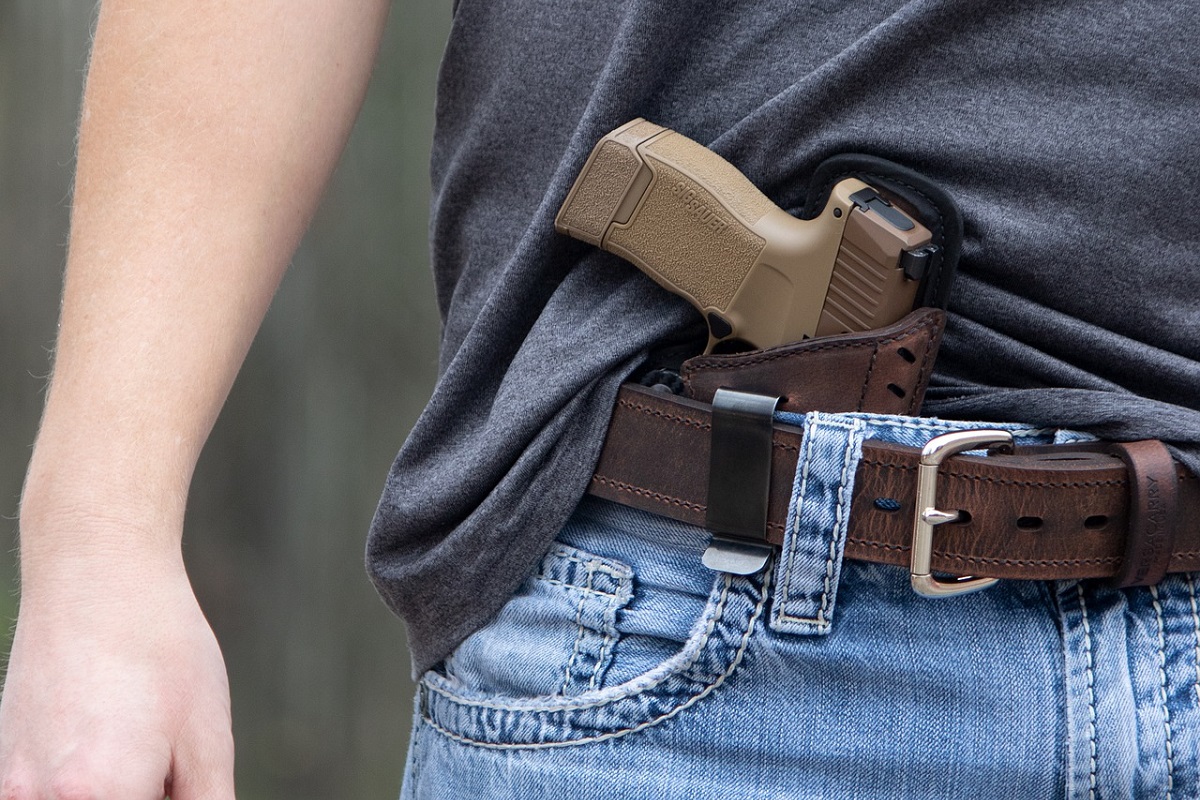By: Enid Burns
Last month, gun rights activists scored a major win as Georgia became the 25th state to adopt a “Constitutional Carry” law.
“The Constitution should be our carry permit, and I look forward to signing a Constitutional Carry measure this year to enshrine hardworking Georgians’ ability to protect themselves and their families in Georgia law,” Georgia Governor Brian P. Kemp announced via social media.
The Constitution should be our carry permit, and I look forward to signing a Constitutional Carry measure this year to enshrine hardworking Georgians’ ability to protect themselves and their families in Georgia law. #2A pic.twitter.com/iWkl8VHo2z
— Governor Brian P. Kemp (@GovKemp) March 2, 2022
The law has seen a significant milestone for supporters of the Second Amendment, as it allows for legal gun owners to carry a concealed weapon without a permit. The law has several names: Freedom to Carry, Permit-less Carry, and Vermont Carry – the latter notes that the Green Mountain State was the first to institute such a law.
History of Vermont Carry
Originally the concept of being able to carry a handgun with a permit was known as “Vermont Carry,” as the state never restricted any adult from carrying firearms. It was ruled by the Vermont State Supreme Court that the state’s constitution didn’t allow any restrictions to be placed on residents, including a licensing scheme. As a result, Vermont has been described as a Constitutional Carry state since before the United States even existed.
Wyoming became the first state to enact or re-introduce similar laws. The movement has gained traction in recent years – especially as many politicians have upped their calls for gun control, including calls for a national gun registration.
“Constitutional Carry is the basic principle that if you are legally eligible to purchase a firearm, you should be able to carry that weapon, concealed, for self-defense without government ‘permission,'” the National Association for Gun Rights (NAGR) has stated. “Constitutional Carry laws recognize the right of every law-abiding citizen to carry a firearm, openly or concealed, on their person, without having to receive government permission in the form of a mandatory state-issued permit.”
When Gov. Kemp signs the legislation into law, Georgia will join Alabama, Alaska, Arizona, Arkansas, Idaho, Indiana, Iowa, Kansas, Kentucky, Maine, Mississippi, Missouri, Montana, New Hampshire, North Dakota, Ohio, Oklahoma, South Dakota, Tennessee, Texas, Utah, Vermont, West Virginia, and Wyoming, in allowing law-abiding individuals to carry a concealed handgun without a government-issued permit.
“Half the nation recognizes the Second Amendment protects law-abiding citizens’ right to self-defense as an inherent and inalienable right,” said Wayne LaPierre, CEO and executive vice president of the NRA. “NRA members have led this extraordinary brick-by-brick effort in building and expanding America’s self-defense laws and we are not done!”
It is Safe
One common, opposing concern to such laws is whether-or-not it is safe because it might encourage untrained or unqualified individuals to carry a handgun. Supporters of Constitutional Carry clearly reply that concealed carry laws have never stopped criminals from illegally carrying a firearm, but the permit process could keep law-abiding citizens from carrying a weapon for self-defense.
Supporters of permit-less carry also maintain that many individuals in Constitutional Carry states undergo training with certified instructors. Moreover, a common complaint among the law-abiding is the high costs of permits, which greatly impact those in lower-income brackets – not to mention the additional time spent taking classes required before receiving a permit. Additionally, no state allows those under the age eighteen to carry a firearm, while half require that the individual be at least twenty-one years old.
Enid Burns is a freelance writer based in Michigan. She covers a wide range of topics from antique relics from around to the world to the latest bleeding edge technology too. Her exposure to military history and firearms comes from her husband, fellow freelance writer Peter Suciu, and together they have traveled the world visiting around 20 countries on five continents. Together they have built a collection of helmets, uniforms and small arms representative of armed forces and conflicts that span the globe. She and her husband continue to travel to military collectibles and antique arms shows around the country to find more treasure, and to discover more topics to research and to write about.

